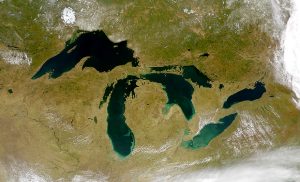Climate Responsiveness at a Local Scale
We often focus on the international level when discussing responses to climate change—for example, the just-concluded 25th Conference of the Parties to the United Nations Framework Convention on Climate Change, the ongoing struggle to operationalize the Paris Agreement, or even the war of words between President Trump and young Swedish activist Greta Thunberg.
 But a much wider spectrum of entities and organizations will have to conduct adaptation and mitigation measures to respond to the intensely local impacts of a changing climate. Among these are what used to be known as wastewater treatment utilities—now often called water reclamation facilities—that may have to deal with (among other things) predicted widespread flooding dangers caused by an increase in larger, more intense precipitation events.
But a much wider spectrum of entities and organizations will have to conduct adaptation and mitigation measures to respond to the intensely local impacts of a changing climate. Among these are what used to be known as wastewater treatment utilities—now often called water reclamation facilities—that may have to deal with (among other things) predicted widespread flooding dangers caused by an increase in larger, more intense precipitation events.
For years, the Milwaukee Metropolitan Sewerage District has been recognized as a “green leader” on a number of fronts, including climate change preparedness. The Marquette University Water Law and Policy Initiative received funding through the MMSD-Marquette WaterCARE grant program to examine and benchmark the District’s considerable climate progress against federal guidance, against actions taken by six peer utilities, and against the ambitious goals it has set for itself (the District seeks, by 2035, to meet 100% of the District’s energy needs with renewable sources, including 80% from internally generated sources, and to reduce its carbon footprint by 90% from its 2005 baseline). Earlier this month, the Initiative completed its work and issued a final report to the District.

